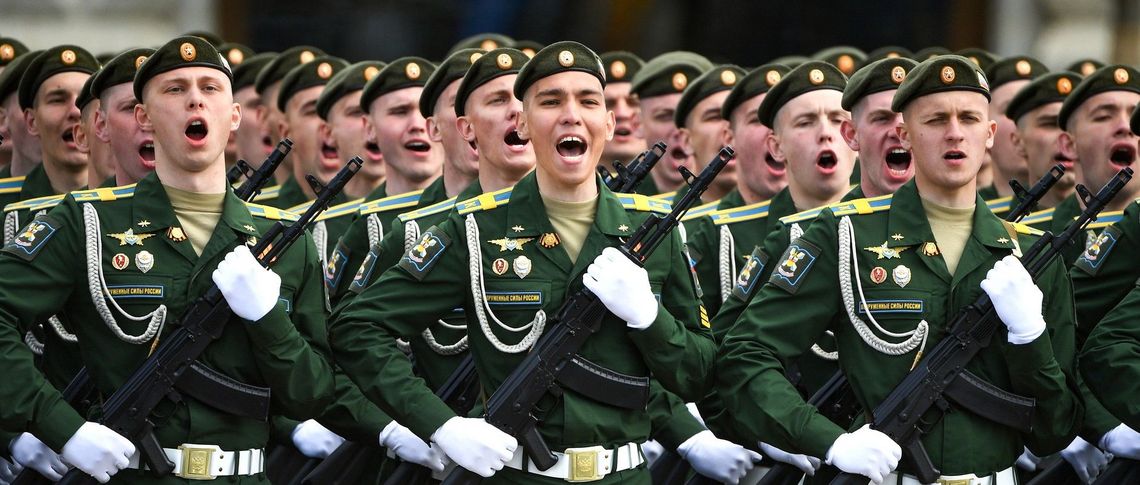In 2001, Vladimir Putin held a speech in the German Bundestag that dealt with Russia’s integration into Europe and partnership more broadly. Since last February, he has waged a brutal war of aggression against Ukraine. How could the tide turn so fast?
I do not find the continued reference to this speech appropriate. Only a few years later, the position set out by Putin at that time no longer had anything to do with de facto Russian foreign policy. What’s more, the speech was held in an entirely different historical context. If we take a closer look, it becomes clear that certain things were already a reality at that time: for instance, a very great distance to the US. Also, the attempt to make it clear to Germany that Europe’s future lies with Russia as opposed to the US. The speech clearly sheds light on this anti-transatlantic stance — an aspect that has been entirely overlooked in our discourse and collective memory. My book depicts an ongoing intensification of what I refer to as Russian chauvinism based on three pillars: firstly, an aggressive nationalism and imperialism in Russian policy. Secondly, sexism and an extreme patriarchy. And, thirdly, autocracy. These three trends have become increasingly radical over the last 23 years. They greatly contributed to the outbreak of the Russian war against Ukraine in 2014 and to the full-scale invasion on 24 February 2022.
In what areas do you observe these three pillars in Russia in concrete terms?
Nationalism and imperialism are manifested most notably in foreign policy, especially in relation to the neighbouring states. The Russian political elite is obsessed with the notion that Russia, as a superpower in a multi-polar world, has the right to a regional sphere of influence, where it defines and enforces the rules. In this sphere of influence, the superpower is the only actor with a real claim to full sovereignty. This stance had already existed in the 1990s, but it was in the 2000s that it started to define policy under the Putin regime.
One of the ways I see growing sexism is a continuous deterioration in women’s rights and increasingly discriminatory policies towards LGBTQI+ people. This is taking place at the societal as well as the political and legal level. The systematic enshrinement of this discrimination in the Russian ‘legal system’ through repressive legislation, which is used increasingly systematically to eliminate feminist and LGBTQI+ activism from the political and social sphere, is one example. As early as the 2000s, the Russian regime moved towards a highly pro-birth policy, as this very sexist and patriarchal regime believed it to be the only way to resolve demographic problems faced by Russia against a background of the transformation crisis during the 1990s. This trend in favour of so-called traditional values was dramatically intensified in 2011/2012 following Putin’s return to the Kremlin. Russian politics is a highly male-dominated environment, where women and marginalised groups are virtually non-existent in the decision-making process.
Autocratisation is the pillar in this chauvinistic triad that inevitably results from the other two. After all, nationalism and sexism – or rather the patriarchy – are autocratic in themselves. If social and private relations are structured in this way, then political relations and a political system are bound to manifest strong autocratic tendencies, too. Nationalism and imperialism, sexism and autocracy are inextricably linked; they are mutually dependent and reinforcing. They give rise to violence — both internally and externally.
Right-wing populist European parties such as the Rassemblement National or the AfD have cultivated close mutual relations with the Kremlin for years. Could these parties result in Russian chauvinism taking hold in Europe?
Yes, right-wing populist and right-wing extremist forces in liberal democracies create docking points owing to their ideological overlaps with Russian chauvinism and are gateways for Russian policy. This policy is extremely illiberal and anti-European. It is directed against the European Union as the embodiment of the liberal order and liberal values. It poses a systemic threat which requires a systemic response. Right-wing populist political forces are channels for Russian chauvinism, so as to undermine liberal democracies as well as the European Union. Problems and crises of liberal democracies have not been caused by Russia or other actors hostile towards the EU. But they exploit those crises to weaken liberalism and democracy, which they perceive as a threat to themselves.
As part of its propaganda, Russia uses media that directly address an international and above all a European audience. What role does this play in the perception of the war in Ukraine for the European perspective?
The Russian foreign propaganda media plays a strong role and ultimately – as repeatedly and openly stated by Russian propagandists such as Margarita Simonjan – is a weapon of war. Accordingly, since the 2000s, Russia made ever-more targeted and intensive investments in these media — Russia Today, Ruptly or Sputnik. Two things are done via these media outlets: Russian propaganda is being spread and disinformation is being conducted. On the one hand, to transport Russian propaganda narratives, for example on the war against Ukraine, but also to entirely relativise truth and objectivity. A very vivid example was the shooting down of MH17, the Malaysian passenger aircraft over the Donbass with almost 300 victims. Here, it was clear to see how the Russian propaganda media released dozens of different versions of this event to the world within no time.
The goal of this strategy is to achieve total confusion, a complete relativisation of and challenge to any form of truth — and the strategy is successful to some extent. Some European societies are far more receptive to this than others. In Poland, for instance, Russian propaganda has little chance to get traction, whereas in Germany and other Western European societies, propaganda narratives emanated by Russian propaganda outlets do take hold. This is also because of the links with radical right-wing and right-wing extremist political currents. Online media and the internet as a communication space are also of crucial importance, given that the EU banned Russian propaganda media following the outbreak of the full-scale invasion. Yet, they continue to be easily accessible via the internet. And this is what makes them powerful, just like the Russian bots and trolls in social media. We must be uncompromising in classifying these foreign propaganda media outlets as a weapon in the Russian hybrid and information war.
If Russia were to lose the war against Ukraine, what would happen to chauvinism in Russia?
Unfortunately, I come to the rather pessimistic conclusion that chauvinism would continue to play a role in Russian politics even in the unlikely event of a democratic transition. That applies to society, too, since chauvinism is embedded in political attitudes, perceptions and identities. We need to assume – as was the case in the 1990s – that precisely these attitudes would remain valid even beyond a democratic regime change. I see a very strong correlation between the development of Russian politics and the war against Ukraine. With his decision for a full-scale invasion, Putin has tied the future of his own regime to the outcome of this war. And the nearer Russia gets to an actual defeat in this war, the more dangerous that would be for his regime.
In the book, I identify three scenarios for the future of Russia. Firstly, regime continuity. As long as this regime is in power, we cannot expect any general changes to Russian politics and, in particular, to its aggressive policy towards Ukraine that is bent on destruction. The second scenario is a regime collapse, which, for example, could occur if Ukraine were to achieve significant military successes, such as a breakthrough to the Sea of Azov or the recapture of Crimea. Such a blow could lead to great domestic political instability and possibly to civil war-like conditions in Russia. We gained a brief glimpse of this in the barely 24 hours of the Prigozhin mutiny. But also, in the third scenario of a democratic transition, we would have to assume that, the way the political elite and society are positioned, there will still be prominent chauvinistic players in Russia. Chauvinism is therefore here to stay, no matter how the country develops. However, this does not mean that it cannot shrink in the event of a democratic transition.
Is the feminist foreign policy pursued by Germany the right answer to Russia’s chauvinist policy?
I believe that this war has fundamentally changed German politics. The whole package of arms shipments would have simply been unthinkable up until the evening of 23 February last year. Feminist foreign policy is a vital response to the chauvinist aggression of Russia. To start with, a feminist perspective illustrates in the first place how deeply sexism is embedded in Russia’s political and social system; how the extremely patriarchal structures and hyper-masculinity are essential pillars underpinning this regime, its production of legitimacy and its violence; and how sexism is part of the aggression. The feminist perspective and the view on gender, especially on private relationships, are immensely important for the early detection of structural violence and its potential impact, as regards both domestic and foreign policy. For if there is a lot of violence at the private level, we can assume that it is penetrating other levels too.
Feminist politics can also play a key role in creating sustainable peace in Ukraine in the future: politically, socially and economically. This also encompasses the inclusion of women and marginalised groups in the political process, as well as the participation of society as a whole in reconstruction. The feminist perspective is essential for this. I believe it has to be an integral part of politics. Asymmetric power structures need to be changed to prevent them from leading to violence once again. Germany’s Feminist Foreign Policy has yet to be filled with substance and implemented in concrete cases. It is only just the beginning, but I’m happy that this perspective is now becoming more important.
This interview was conducted by Linn Jansen.






